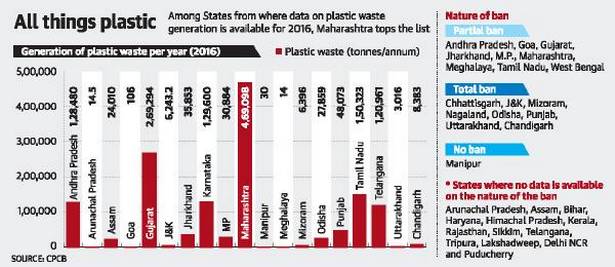7667766266
enquiry@shankarias.in
What is the issue?
What does the ban encompass?
What are the challenges in implementing the ban?
How is the ban going to be implemented?
What is the countrywide status on plastic management?

How do states fare in regulating plastics?
Will Maharashtra’s ban work?
Source: The Hindu